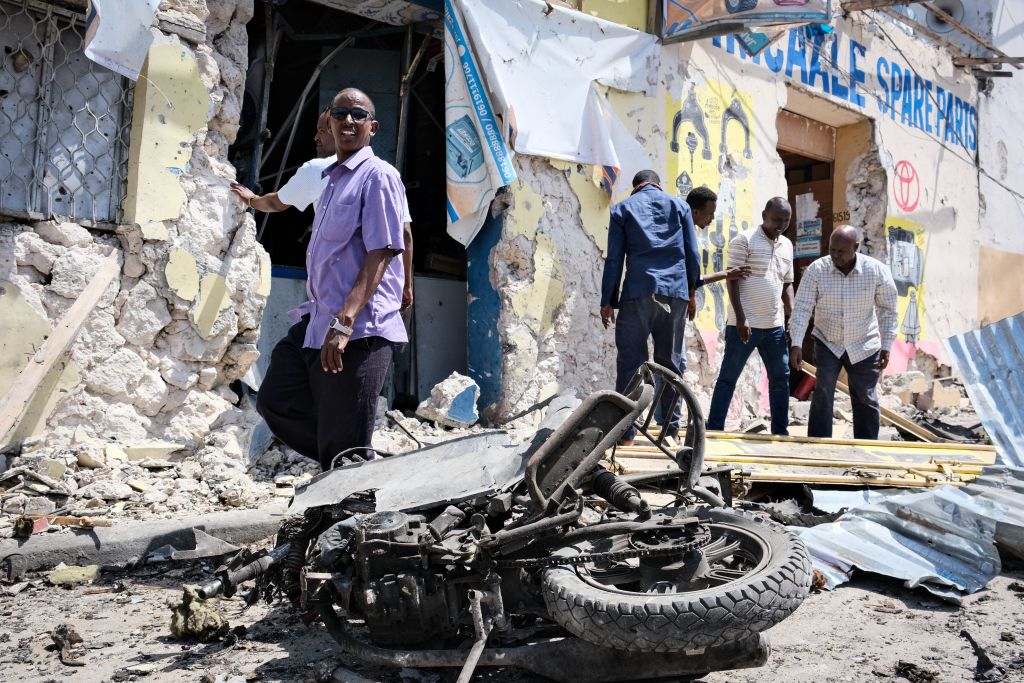ADF STAFF
Sub-Saharan Africa is the world’s new epicenter for violent extremism, and most people who join extremist organizations said they were motivated by a lack of work, according to a new report by the United Nations Development Programme (UNDP).
Nearly 2,200 people from Burkina Faso, Cameroon, Chad, Mali, Niger, Nigeria, Somalia and Sudan were interviewed for the report titled “Journey to Extremism.” It follows up on a similar U.N. report published in 2017.
“In many countries … the lack of income, the lack of job opportunities, livelihoods, desperation is essentially pushing people to take up opportunities with whoever offers them,” UNDP chief Achim Steiner told journalists.
Among the respondents were more than 1,000 former members of violent extremist groups, such as al-Shabaab, Boko Haram and Jama’at Nusrat al-Islam wal Muslimeen, or JNIM.
“After my father lost his job, I wanted to financially support my family being part of something that really exist,” Hasan, an 18-year-old from Somalia, told the researchers. “I also wanted to have power over people and take the controlling lead so that people would respect me.”
The second-most-common driver for recruitment is peer pressure from family members or friends, including women who follow their spouses into a violent extremist group, the report showed.
Religious ideology was the third-most-common reason for joining the groups, cited by 17% of the respondents — 57% less than in 2017, when religious ideology was cited as the main reason for joining a violent extremist group.
Most of the respondents were from remote areas with 62% raised in villages compared to 7% raised in cities. Only 40% of people who voluntarily joined violent extremist groups said they had friends from other religions.
The new research showed that education levels were significantly lower among voluntary recruits, echoing findings of the 2017 study.
The report cited Boko Haram’s strategy in Nigeria of targeting young people from poor socio-economic backgrounds with limited formal education. That helps explain the group’s appeal in Borno and Yobe states, which have the country’s lowest literacy rates, the report said.
At the time of joining a violent extremist group, 36% of the respondents said they believed their religion was under threat.
“They were preaching that if we join them, we will go to Heaven and their ideology is the only way to worship Allah,” Kurama, a 38-year-old from Cameroon, told the researchers.
A majority of recruits said they had limited knowledge of religious texts.
After joining a group, most found that their financial expectations were unmet and they couldn’t trust group leaders. These were cited as the two main reasons for leaving a violent extremist group.
“Research shows that those who decide to disengage from violent extremism are less likely to re-join and recruit others,” Nirina Kiplagat, UNDP’s technical lead in Africa on preventing violent extremism, said on the organization’s website. “This is why it’s so important to invest in incentives that enable disengagement. Local communities play a pivotal role in supporting sustainable pathways out of violent extremism, along with national governments amnesty programs.”
The report confirmed that violent extremist groups in Africa expanded since 2017. Nearly half of all global terrorism-related deaths occurred in Sub-Saharan Africa in 2021. Four of the 10 countries most affected were Burkina Faso, Mali, Niger and Somalia, where 34% of terrorism-related deaths happened.
Deaths from terrorism increased tenfold in the Sahel region since 2007, the report said.
“If nothing is done, the effects of terrorism, violent extremism and organized crime will be felt far beyond the region and the African continent,” António Guterres, United Nations secretary-general, said in the report.

